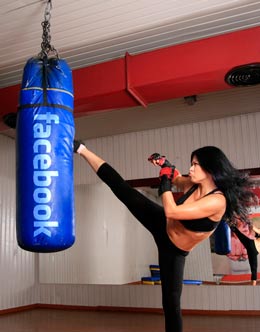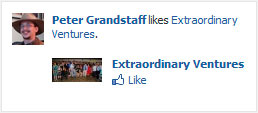 I don’t really care for Facebook. I bet you don’t exactly love it either. Maybe you even hate it. The problem is that you have to use it these days or you’ll be left in the dust.
I don’t really care for Facebook. I bet you don’t exactly love it either. Maybe you even hate it. The problem is that you have to use it these days or you’ll be left in the dust.
Seriously. Facebook gets as much traffic as Google. Despite this, people don’t really like it. One survey found that user satisfaction with Facebook was on par with the IRS or airlines. That’s pretty bad.
Here’s the good news: You can succeed on Facebook, no matter how much you dislike it. I’m referring to success in a business sense, of course. I’m sure you can find some help elsewhere if you’re worried about succeeding socially.
First off, let’s be clear about your objective on Facebook. Bring in more money? No. That comes later. To succeed on Facebook, your goal has to be to build an engaged community with a common interest.
People aren’t on Facebook to be sold things. There isn’t usually commercial intent with a Facebook user. There’s social intent. Engage with your audience socially and they’ll be more likely to remember you when they do have commercial intent.
So, you know your objective. How do you get there? If you want to skip to the advanced stuff, scroll down the the Sponsored Stories header below.
First, you need a Facebook Page for yourself or your organization. That part’s easy.
Next, you need to put content out there. Remember, you’re not selling. You’re connecting. Share useful articles, fun pictures, interesting videos, or news items that will interest your target audience.
How much to post and how often varies. You’ll have to experiment, and don’t be afraid to ask your fans if they’d like to hear from you more or less.
Now you’ve built it. They’ll come, right? Wrong. Your Facebook page is not a Field of Dreams. It needs to be promoted just like any other web property.
Here are a few ways to start promoting your page:
- Put a link on your website — visitors to your site are hopefully in your target audience.
- Share the page with your personal Facebook friends — they may not be your target audience, but you need some “likes” to get started.
- Post viral content that people will want to share with their friends
- Buy some “likes” if need be — don’t count on these being useful connections, but they can help get a new page off the ground.
- Display QR codes at your physical location or at events
- Run a Facebook Ad
- Run a Sponsored Story
Numbers 6 and 7 will mean giving Facebook some money, but they are also the most effective ways of promoting your page. Sponsored stories are particularly potent, though widely misunderstood.
Since regular ads are fairly self explanatory, let’s jump right into Sponsored Stories.
Sponsored Stories
[Note: The interface for setting up sponsored stories was changed between the time this post showed up in my email newsletter and when it was posted here. It all works the same, but the interface has been rearranged.]
If you’re like I was, you’re thinking, “but I don’t have a story worth promoting.” Forget what you know as a story. Facebook has co-opted the word and is using it to describe something else. (Have you noticed they have a habit of doing that sort of thing? Ugh.)
There are a few kinds of Sponsored stories. I’m going to focus on just one of them, Page Like Stories.

My friends might see an ad like this.
They are ads that come with social endorsement. Everyone has developed some ad-blindness these days. Our eyes are hard to catch. Show us a picture of a friend and we’ll look. That’s what makes these sponsored stories so powerful.
It gets even better, though. Not only are you targeting people who are one degree of separation from being a fan already, but you can further narrow down your targeting by interest. How about an example?
You run a business in lovely Chapel Hill, North Carolina. You sell lots and lots of UNC gear — jerseys, bumper stickers, sky blue face paint, that sort of thing. You can run a Page Like Story to expose your Page to the friends of your current fans. Lots of them are probably in and around Chapel Hill, so that’s great. But, as anyone familiar with this area knows, there are other schools that people like… and they tend to feel quite strongly about this. A Duke fan will never like your page, even if they happen to have a friend who does. So, you target your Page Like Story to people interested in UNC, Tarheels, The Daily Tarheel, and anything else that makes sense. Now your Page Like Story will only appear to friends of fans who actually like UNC.
Can’t You Just Get Your Fans to Spread the Word
Once upon a time, Facebook would expose your page to people every time one of their friends liked something you posted. No longer. They are trying to monetize now, as they stare down the barrel of an IPO.
Around November 1, 2011, Facebook Pages started getting more paid impressions than organic impressions. It was the other way around for a long time prior. Now they show more ads and make it harder for you to get organic impressions. It will probably get worse, too.
Advertising on Facebook is pretty affordable, though. It’s also pretty easy to get up and running with it.
Just remember to Always Run Tests and make Data Driven Decisions.
Check out part two of this guide to learn how to use different kinds of Facebook ads together and why you should have a Facebook ads account even if you aren’t running ads.